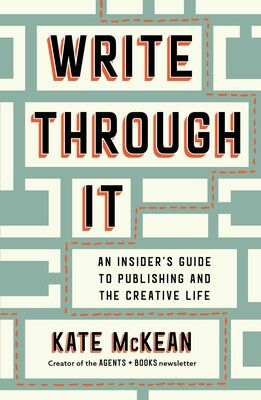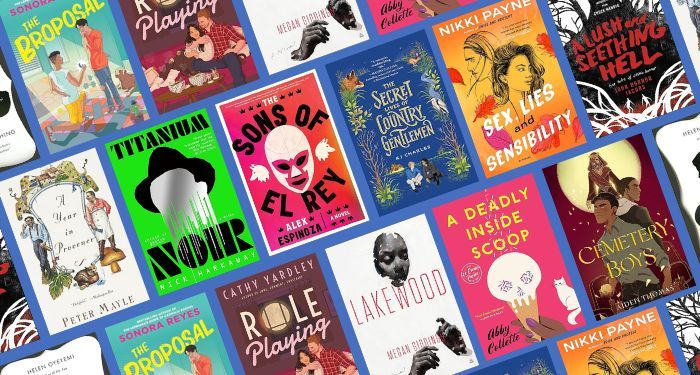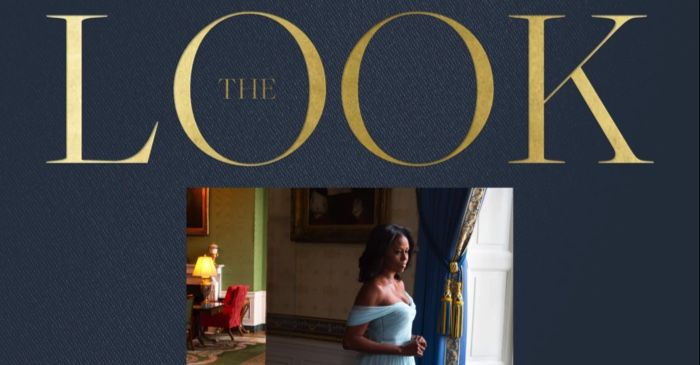I have always been fascinated by the phrase “sold at auction” when hearing about an author placing their manuscript at a publisher. I understand of course what an auction is, but never gave a lot of thought to how exactly these literary auctions work. So when I was reading Kate McKean’s forthcoming book, Write Through It: An Insider’s Guide to Publishing and the Creative Life, the section on the mechanics of the two types of auctions jumped out to me.
 |
I thought Today in Books readers would be interested as well. So thanks to Kate McKean and the folks at S&S/Simon Element for agreeing to run this lightly edited (for length) excerpt.
__________________________________________
There are roughly two kinds of auctions: round-robin and best bids.
In a round-robin auction, the agent takes offers until a certain time (Wednesday by noon, say) or until everyone’s weighed in, and then orders the offers from lowest to highest. Then the agent says to the low bidder, Hey, editor, you are the low bidder of X number of bidders. The high offer is Y. Let me know your next bid. The low bidder has a chance to go back to their team and strategize their improved offer; they’ll come back to the agent with that number when they can or according to the schedule the agent dictates. The next-highest bidder has a chance to beat that new offer, and so on until no one’s bidding any higher.
Sometimes that means there’s a clear winner, and sometimes there are two (or more) close bids, and the author gets to choose.
From my experience, whatever the most annoying, complicated outcome there could be, that’s what’ll happen. The editors do not know who they are bidding against (though I’m sure they can guess), but they often know how many bidders there are. Every major publishing house has some kind of rule about what imprints can and can’t bid against each other, but your agent will have worked all that out before the auction starts.
Round-robin auctions can take a lot of time. This is the primary downside about them, in my opinion. It’s not uncommon for them to take a week to wrap up, depending on what the editors have to do to get a higher offer approved. There is less chance, too, for an editor to wildly increase their offer, not even to just get the auction over with.
None of that is fun, but it’s also not necessarily bad. These auctions rarely lead to editors overpaying for a book or having bidder’s remorse. I think, too, that it breeds a lot of goodwill between agent/ author and editor, because the process is pretty transparent.
Bids usually increase by a few thousand dollars at a time and every editor is trying to pay the least for the book they want the most. While this might yield less cash, the author is much less likely to be saddled with the outsized expectations that come with an overblown advance.
Author and former editor Andrew Eliopulos said he thought authors should want their book to do as well as editors projected on a realistic, not inflated, P&L, because then he’d “get to sign up your next three with almost no discussion at the acquisitions meeting.”
Otherwise, if an author got a huge advance they had no hopes of earning out, it would be hard to argue that the publisher should buy their next book, since their first one lost the company considerable money. Of course, most authors can’t or don’t want to turn down the big bucks if it’s offered to them. YA author and senior editor at Alcove Press Jessica Verdi said she didn’t know anyone, including herself, who would turn down a hefty advance, “but at the same time, I think it is a weight. I think it is a lot of pressure.”
If you fail to make back your advance, you don’t owe the publisher any money. But that doesn’t mean there aren’t other costs of not earning out.
Everyone wants the big, splashy advance because they think it signals a lot of investment, faith, and, well, high hopes for the success of their book. But it’s useful to think about your future books, not just your debut.
The other kind of auction, best bids, does have the chance of higher payouts. I know you’re thinking If one gets you more money, why would you ever do the other??? But trust me: if one way guaranteed more money, we’d just do that all the time. There are trade-offs with each kind of auction, and every agent makes an informed decision about which tack to take for each individual book.
In a best-bids auction, the agent says to editors, Get me your best bid by noon on Wednesday. And that’s it. The editors are flying blind. They don’t know how many people are bidding for the book or whether their competitor is coming in at $10,000 or $100,000. If they really want the book, they better come in big, right? But what if they make too big an offer and their P&L is a lost cause and they greatly overpay for it? A best-bids auction doesn’t automatically yield the big bucks. It might yield crickets.
The benefits of best-bids auctions are definitely speed and the potential for a big payout. In the best-case scenario, you know all the offers for your book by noon on Wednesday and all you have to do then is choose one. But best bids can also potentially scare off interested editors. If they don’t think their $25,000 offer will fly in a best-bids auction, they might not make an offer at all. To agents and authors, one $25,000 offer is better than no offers at all. (I see you all nodding enthusiastically.) In a round- robin auction, that $25,000 might even get bid up to $35,000 or $40,000 with a few not-scared-off editors.
What I’ve heard from editors is that some agents are not as, uh, scrupulous about auctions. I’ve heard all kinds of tomfoolery about making up offers, and one-round best bids turning into surprise two- or three- round best bids. If an agent pulls shenanigans to get ahead, it will be found out, and editors will look at all their future submissions with skepticism. Tricks do not sell books or get higher advances. An ethical agent will earn you more money in the long run than one willing to cut corners.
The round-robin auctions do take soooooo long. The most important thing, for me and for you and your agent, is to make the best decision for your book with the information you have, not the flashiest decision or the one that will trick anyone into offering more money than they think the project is worth. You and your agent have to look the editor in the eye after the auction is over and work with them for several more years! No one likes to be tricked.
________________________________
Excerpted from WRITE THROUGH IT. Copyright © 2025, Kate McKean. Reproduced by permission of Simon Element, an imprint of Simon & Schuster. All rights reserved.
Kate McKean is a literary agent at the Howard Morhaim Literary Agency in Brooklyn, New York. She was an adjunct professor at New York University for over a decade and earned her MA in fiction writing at the University of Southern Mississippi. Her work has appeared in Poets & Writers, Electric Literature, Catapult, and elsewhere. She writes the popular Substack newsletter, Agents & Books, at AgentsandBooks.com. She is the author of Write Through It: An Insider’s Guide to Publishing and the Creative Life.













 Bengali (Bangladesh) ·
Bengali (Bangladesh) ·  English (United States) ·
English (United States) ·